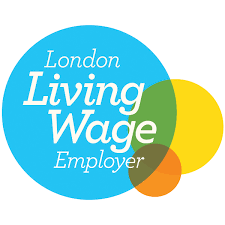
As a provider of business loans London based, we have been following the government's latest legislative plans. The plans for the year ahead have been unveiled in the Queen's Speech to Parliament and David Cameron promised a Queen's Speech to “bring Britain back together”. The speech, on May 27th, outlined 21 new Bills that will be brought before Parliament in the next session. In this article we feature three that are of particular interest to small business owners:
Enterprise Bill
The aim of the Enterprise Bill is to reduce regulation on small businesses and boost job creation. It aims to do this by:
- cutting red tape for small businesses;
- creating a Small Business Conciliation Service to help settle disputes between small and large businesses, especially over late payment;
- reforming the business rates system ahead of the 2017 revaluation, including simplifying the process by which small businesses can appeal against business rates;
It is anticipated that the plans outlined in the Enterprise Bill could potentially save British business at least £10bn. For the first time, progress will be monitored by independent regulators, who will be charged with making sure the target is achieved.
National Insurance Contributions and Finance Bill
This is a wide-ranging bill that aims to implement the various tax pledges made by the Conservatives during the general election campaign. Some of these impact more on small businesses than others, but they are worth understanding in more general terms:
- there will be no rise in income tax rates, VAT or national insurance contributions before 2020;
- the threshold before which people pay income tax will be raised to £12,500;
- no one working 30 hours on the minimum wage will pay income tax.
These measures are anticipated to benefit 30 million people. The government says the purpose of the bill is to "reward those who work hard and do the right thing".
Full Employment and Welfare Benefits Bill
The purpose of this Bill is to freeze the main rates of the majority of working-age benefits, tax credits and Child Benefit, and to reduce the level of the benefit cap, with the aim of achieving full employment.
By making these changes, the government hopes to support the creation of 2 million new jobs and 3 million new apprenticeships, helping young people into paid employment by providing them the support, skills and experience they need to fulfil their potential.
We will feature more details of these changes as they are implemented over the coming parliament, and will explore their specific impact on small business owners. In particular there are many potential financial benefits to small businesses in the Enterprise Bill, and also staffing possibilities from the government-supported apprenticeship schemes under the Full Employment and Welfare Benefits Bill. Furthermore, we will be looking at the impact these changes in legislations will have on microfinance institutions providing loans for small business.
Commenting on both these bills, Andrew Leck, Head of Western Europe, ACCA, (the Association of Chartered Certified Accountants) says: “The details of both bills will be essential for ensuring business has the means to invest and grow and that businesses large and small are able run workable apprenticeship schemes.”
Watch this space!




